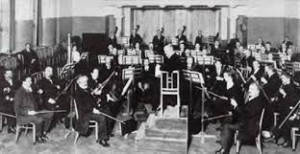
Sibelius conducting
Credit: http://www.angelfire.lycos.com/
You would never think our minds are on our stomachs most of the time. But there’s a thorny question—to eat or not before we perform. If so, what? I’m always hungry. I eat before, in the middle, and after a concert. I need the energy of course—a steak before I play and for sure dark chocolate during intermission, nothing more to drink than water. After the concert I indulge in sweets especially if I played well! Pianist Anton Nel recently conducted an unofficial survey of his colleagues and I did another. Nel’s favorite pre-concert meal is a large peanut butter and jelly sandwich.
The survey revealed some very interesting preferences.
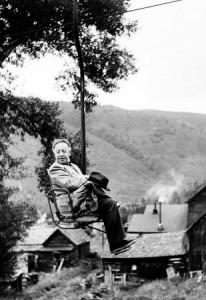
Arthur Rubinstein
Credit: http://animprobablelife.com/
Another musician said, “I eat a LOT early in the day. I don’t want to be too logey at concert time so I eat only fruit and granola bars three hours before the concert through the performance. But after the concert both my mind and body inform me that now I am starving lol.” What is one to do when attendance is required at the after-concert reception and cookies, brownies and punch is all that’s offered?
A pianist I know said that she once had three lamb chops, Bratkartoffeln, and a huge salad before Bartók’s Sonata for Two Pianos and Percussion. Her colleagues were incredulous. Wouldn’t she risk just falling asleep in mid-phrase? In protest she responded that she cannot play hungry.

Jimmy and Jackie
The votes for the magic eating prescription included— sushi, cheese enchiladas, cheeseburgers, spaghetti Bolognese, a bagel with tuna salad. (And something fried with at least a beer or some wine afterward!) But there were more votes for healthy and easy on the stomach food such as peanut butter, light protein and greens—bananas and nuts at the ready for intermission. (Wind players always have a toothbrush handy for that scenario.)
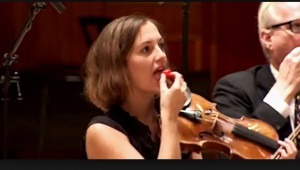
Eating hot pepper
1) Keep hydrated. Stage lights can be hot. There is always the possibility of becoming dehydrated especially since we often perform in jackets, or tails.
2) Avoid caffeine including coffee, tea and caffeinated cold beverages as these can cause the shakes and may worsen the effects of stage fright.
3) Avoid spicy foods. For heaven’s sake don’t deliberately eat a hot pepper before playing, like an orchestra did recently for an ad. Not only might it make you thirsty or upset an already nervous stomach, it can make you perspire more and cause fingers to feel slippery.
Members of the Danish National Chamber Orchestra playing Tango Jalousie while eating the worlds hottest chili peppers
4) Avoid sugary foods, which may give you a quick high but then you may crash. Do eat complex carbohydrates and light proteins that will give you energy throughout the concert such as yogurt, poultry or eggs, greens and something with potassium like bananas.
5) Avoid eating too much. If you feel too full you may become groggy and you will inhibit the movement and flexibility of the diaphragm, essential for singers and wind players. Energy can be boosted when you eat foods that can be metabolized easily and quickly.
6) Avoid alcoholic beverages, which are dehydrating and may slow your response, make your fingers sluggish and affect your attention. If you feel that you need something to calm your nerves herbal tea with honey, warm water with honey, or coconut water might do the trick.
7) Singers and wind players should consider how to keep mouths moist. Jeannie Deva in a blog post on Musician Makers indicates that certain foods can activate salivary glands. Eating crackers and sweet-tart hard candies will stimulate your salivary glands. This hydrates and moistens your palette.
8) Vocalists, and this goes for pop artists too, should avoid both very cold, very hot drinks and dairy products before performing, which may increase the mucous in your throat. Herbal tea with honey and lemon is ideal to lubricate vocal folds.
The “survey” caused quite a lot of debate. Common sense, and paying attention to your energy and hydration is as important as learning the notes.
Concert presenters, fans and board members, remember that artists are frequently ravenous after a concert. Their performance has resulted in a great expenditure of calories. When good food is made available, it is very much appreciated, especially when a group is on tour—at the very least, some peanut butter and bananas.

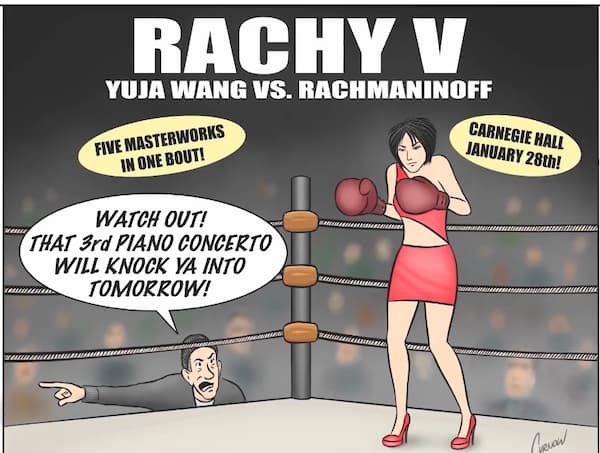
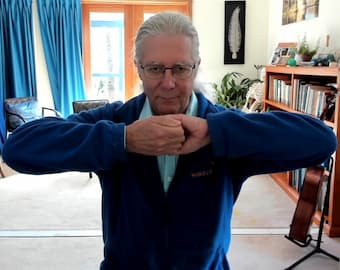
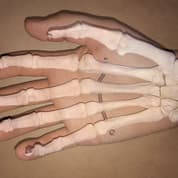
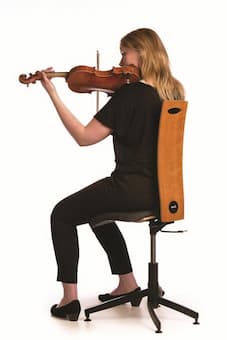
Love this page . My teacher studied at the Paris Conservatory when Debussey, Faure, Ravel etc. were fixtures around there. He gave me a note from Alexander Guillmante to come for his first organ lesson. Music must have been so exciting around there with all these musical greats. All the stories he told me was worth more than the price of a lesson with him…….. Madge Tappenden Ladd